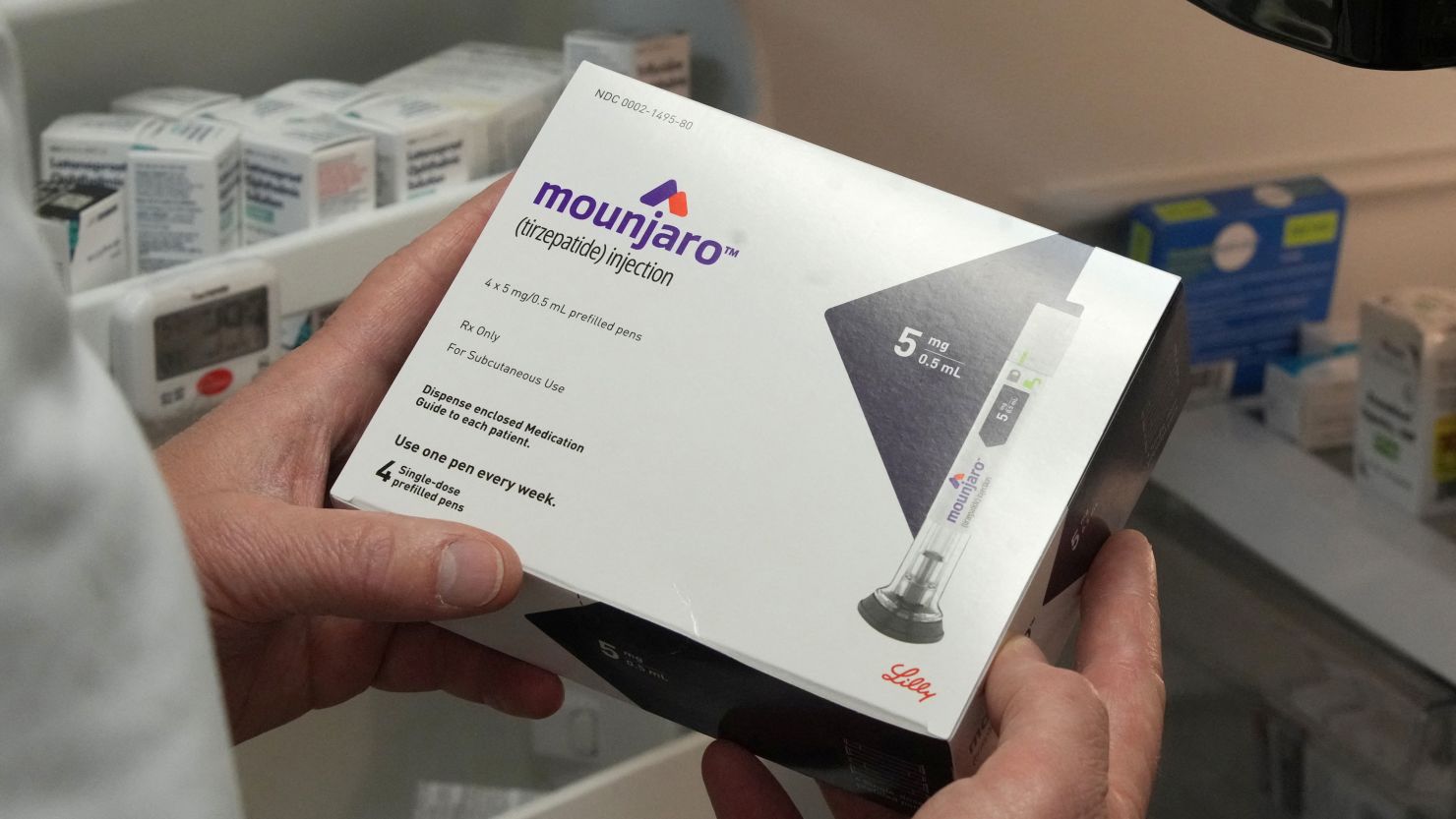There’s more evidence that the injectable drug tirzepatide helps people with diabetes lose weight as well as control their blood sugar, according to the drug’s manufacturer, Eli Lilly and Company.
In a new study, more than 900 adults with obesity and diabetes took the drug for a year and five months, and those on the highest dose lost an average of 34 pounds, or nearly 16% of their starting weight. It also helped people reduce their blood sugar, the company said in a news release. The data has not yet been peer-reviewed or published in a medical journal.
“We have not hit 15% in any other phase three trial for weight management in this type two diabetes population,” said Dr. Nadia Ahmad, an associate vice president at Eli Lilly and medical director of obesity clinical development for the company.
Ahmad said the company was pleased with these results, given how hard it is for people with type 2 diabetes to lose weight.
Tirzepatide is currently sold as Mounjaro and approved to help people with type 2 diabetes control their blood sugar.
Lilly says it will use the new study, along with results from an earlier study of weight loss in people without diabetes, to ask the US Food and Drug Administration to fast-track approval for tirzepatide purely for weight loss, which would make it a direct competitor to the blockbuster obesity drug Wegovy.
Plenty of people aren’t waiting for the FDA’s nod.
“I am aware of and I’ve heard, you know, it being sort of used off label for weight loss and individuals who do not have diabetes,” said Dr. Kimberly Gudzune, medical director of the American Board of Obesity Medicine. Gudzune was not involved in the tirzepatide study.
Gudzune points out that once a drug is FDA approved it can be prescribed for any reason a doctor sees as medically necessary.
Tirzepatide, along with several similar types of drugs taken for diabetes, went into shortage last year as success stories posted on social media fueled runaway demand for their weight loss benefits. The shortages made the medications difficult for patients with diabetes to get.
Tirzepatide works by mimicking the action of two different gut hormones. When blood sugar rises after eating, the drug stimulates the body to produce more insulin, which lowers blood sugar. It also slows down the movement of food from the stomach, making people feel fuller for longer. In clinical trials, people who took tirzepatide experienced more nausea, vomiting and diarrhea compared with those who took a placebo injection.
Like other drugs in its class, it also seems to help people lose substantial amounts of weight.
Semaglutide, manufactured by Novo Nordisk, has also been approved as a weight loss medication for overweight adults with at least one associated health problem since 2021. When prescribed for weight loss, it is sold under the brand name Wegovy. When prescribed for diabetes, the injection is sold under the brand name Ozempic.
High demand, coupled with manufacturing problems, threw Wegovy into shortage for much of the last year. That shortage then rippled into shortages for diabetes patients as doctors began prescribing other diabetes medications off-label for weight loss.
There has already been a lot of buzz about tirzepatide’s potential as an obesity medication. In a clinical trial published in the New England Journal of Medicine last year, people who were overweight or obese, but did not have diabetes, lost an average of 52 pounds on the highest dose of the drug, or more than 20% of their starting weight.
Get CNN Health's weekly newsletter
- Sign up here to get The Results Are In with Dr. Sanjay Gupta every Tuesday from the CNN Health team.
“In the last year has been really exciting just to have more tools in the toolbox, so to speak. And tools that, you know, we’re seeing really achieving outcomes that patients for the longest time have been hoping to achieve,” Gudzune said.
If those results hold up in the real world, that would make it the most potent of the injectable weight loss medications.
Indeed, this week Lilly aims to begin a study that will test Mounjaro against Wegovy head-to-head in 700 participants at 61 sites in the United States and Canada, according to clinicaltrials.gov. The study will conclude in February 2025.



